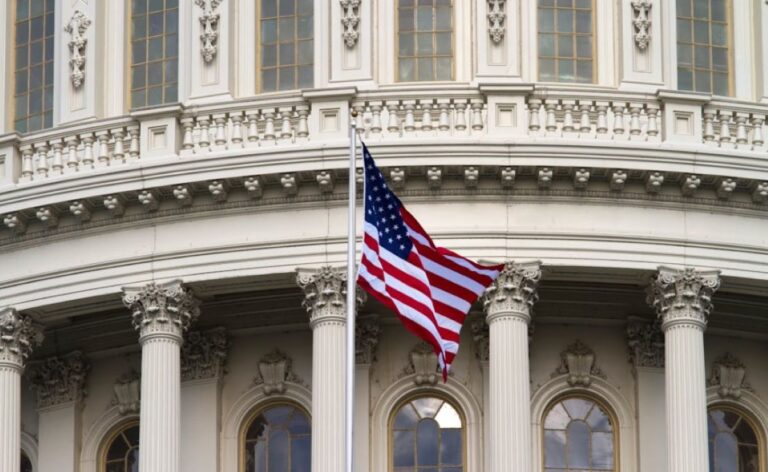The US elections have historically held significant sway over the nation’s economic landscape. As the 2024 elections approach, the potential economic impacts are drawing keen attention from economists, investors, and the public alike.
This article delves into the economic ramifications of US elections, with a particular focus on the upcoming November 2024 elections.
Table of Contents
Historical economic impact of US elections
US elections have traditionally created periods of economic uncertainty, which can influence market behavior, consumer confidence, and investment decisions. Historical data suggests that presidential elections can lead to fluctuations in the stock market.
For instance, the S&P 500 index often exhibits increased volatility during election years, reflecting the market’s sensitivity to potential policy changes.
Presidential candidates’ economic policies play a critical role in shaping market expectations. Policies on taxation, regulation, government spending, and trade can significantly impact different sectors of the economy.
For example, the 2016 election saw a marked market response to Donald Trump’s victory, primarily due to his proposed tax cuts and deregulation promises. The anticipation of these policies led to a post-election surge in stock prices, particularly in sectors like finance and energy.
Economic uncertainty and market volatility
Elections introduce a level of economic uncertainty that can cause market volatility. Investors often become cautious, leading to fluctuations in stock prices.
This is partly due to the potential for significant policy shifts that can alter the business environment. The uncertainty surrounding election outcomes and their subsequent policy implications can lead to decreased business investment and hiring, as companies may adopt a wait-and-see approach until the political landscape becomes clearer.
The 2024 elections are expected to follow this pattern, with key issues such as taxation, healthcare, climate change, and trade taking center stage. The candidates’ differing approaches to these issues could have far-reaching impacts on various sectors.
For instance, a candidate favoring aggressive climate policies could significantly affect the energy sector, while changes in healthcare policy could impact the pharmaceutical and insurance industries.
Consumer confidence and spending
Consumer confidence is another critical factor influenced by elections. The uncertainty and potential for significant change can impact consumer sentiment, which in turn affects spending behavior.
High consumer confidence typically translates to increased spending, which drives economic growth. Conversely, low confidence can lead to reduced spending and economic slowdown.
Leading up to the 2024 elections, consumer confidence will likely fluctuate as the political climate evolves. The economic platforms of the candidates will be scrutinized for their potential impact on job creation, wage growth, and inflation.
Policies aimed at boosting economic growth and reducing inequality could bolster consumer confidence, while uncertainty or unfavorable economic proposals could dampen it.
Policy implications and long-term economic impact
The economic impact of elections is not limited to the short term. The policies implemented by the winning candidate can have lasting effects on the economy.
Tax reforms, regulatory changes, and government spending priorities set by the administration can shape economic conditions for years. For example, the tax cuts and deregulation measures implemented during the Trump administration had significant long-term impacts on corporate profits and investment patterns.
As the 2024 elections approach, long-term economic policies will be a crucial focus. Issues such as fiscal responsibility, debt management, and social welfare programs will be debated extensively. The direction these policies take will influence the country’s economic trajectory for the foreseeable future.
US elections, a multifaceted economic impact
The economic impact of US elections is multifaceted, affecting everything from market behavior and consumer confidence to long-term policy implications.
The November 2024 elections are poised to continue this trend, with critical issues on the ballot that could reshape the economic landscape. As voters head to the polls, the decisions made will have profound implications for the nation’s economic future, underscoring the intrinsic link between politics and economics.
In summary, understanding the economic impact of elections involves considering both immediate market reactions and the longer-term effects of policy changes. As the November 2024 elections draw near, staying informed about the candidates’ economic platforms and potential policy outcomes will be crucial for stakeholders across the economic spectrum.
Read also: Crypto and US presidential elections: Donald Trump opens to donations via Lightning Network












